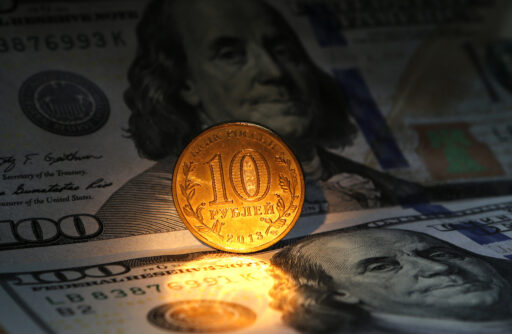The death of Yevgeny Prigozhin in a plane crash was the most high-profile event of the week, but in a way it was expected and logical. Prigozhin had long flouted the rules of the system, and even before the mutiny Kremlin insiders had hinted that the security services would sooner or later have to deal with this heavyweight. After the mutiny, Prigozhin’s chances of survival have diminished considerably. The march of the «Wagner» men made Vladimir Putin feel insecure and painfully uncomfortable. Despite the fact that Prigozhin never achieved his goals (first and foremost among them — the resignation of the top brass of the Defence Ministry) and retreated, the «Wagner» revolt exposed the weakness of Putin’s power vertical: it turned out to be disoriented. The masses, who, according to opinion polls, fervently support the head of state, did not come to his defence. Putin is a vengeful man and is unlikely to forgive or forget such a humiliation.
It is possible that Prigozhin could have prolonged his life had he fully complied with the terms of his tacit agreements with the Kremlin. As the Russian president’s press secretary, Dmitry Peskov, publicly stated, Putin had «guaranteed» the Wagner founder’s safe departure to Belarus. However, Yevgeny Prigozhin did not want to leave Russia: he constantly flew back to his native St Petersburg and Moscow, as the media and Telegram channels affiliated with him regularly reported. These same channels also wrote that the founder of «Wagner» group allegedly took part in the Russian-African forum and negotiated with foreign delegations. «Putin’s cook», who has nevertheless fulfilled part of the terms of the agreement and stopped making loud statements, has adopted his old tactic of sending hints to signal his influence and his ability to keep afloat. Prigozhin’s physical elimination became a matter of months or even weeks. Terrorist attacks allegedly carried out by «Ukrainian subversive groups» have successfully targeted field commanders and officials of the self-proclaimed Donetsk People’s Republic and Luhansk People’s Republic, who were far more loyal to the Kremlin than Prigozhin ever was. The explosion also killed the founder of «Wagner», who was personally responsible for causing far more troubles for Vladimir Putin than Aleksandr Zakharchenko or Motorola.
One cannot help but wonder: if Prigozhin was eliminated at the will of the Russian authorities, does his high-profile death signal a transition of the regime and the repression it masterminds to a whole new level? The destruction of the plane carrying the founder of «Wagner» must be an indication that the Kremlin is no longer embarrassed or afraid of anything and is launching demonstrative reprisals. But even before that, the country’s top leadership never had any scruples about prosecuting its political opponents. In 2015, Boris Nemtsov was murdered just outside the Kremlin walls; in 2020, opposition activist Alexei Navalny was poisoned; and we can recall even earlier stories of assassinations and poisonings of those opposed to the regime. These cases are no less demonstrative and brazen than the destruction of Prigozhin’s plane. It is quite likely that his opponents had to choose this method of elimination because the founder of «Wagner» had a large security detail at his disposal.
Prigozhin’s assasination, despite Putin’s security guarantees, will not be the first instance of the Russian president reneging on his public promises. He has long had little concern for his voters feelings about him not keeping his word: for example, the decision to increase retirement age in 2018 was announced almost immediately after Putin won the next election. Of course, there was no mention of pension reform in his programme, and Putin himself had insisted that he would not allow the retirement age to be raised. Putin also repeatedly promised that he would not allow the constitution to be changed, but in 2020 the country’s basic law was amended with his approval. The president has also broken personal and public promises. In 2017, he openly promised the head of the Mari-El republic, Leonid Markelov, a new job in the Federation Council. One of the last surviving dinosaurs of the governor’s corps needed guarantees to resign, and the president gave them to him. Some time later, Markelov was arrested on charges of corruption. In 2022, on the eve of the Russian invasion of Ukraine, Putin deceived the leaders of the Western countries by personally assuring them that Russian troops had been on the border of the neighbouring country for military exercises and that they were already on their way to their home barracks. In Vladimir Putin’s system of coordinates, his personal guarantees to Prigozhin, who violated the rules of the system, could certainly be withdrawn: after all, the founder of «Wagner» did not keep his word either.
The liquidation of Prigozhin and the public reaction to it (as well as the reaction of some part of the Russian elite) highlighted yet again that Russians are not very interested in the ongoing war. As long as Prigozhin promoted himself, aggressively criticised the leadership of the Defence Ministry and the elites and demanded justice, he aroused some interest. After he launched the mutiny and then reduced his public activity, he disappeared from the sociologists’ radar. Prigozhin’s death caused a wave of grief only among his ardent supporters (mostly Wagnerites and anonymous so-called «couch patriots»), while the politicised Russian internet segment, which includes people loyal to the Kremlin, began posting memes and making jokes. It’s likely that in the minds of his loyal audience, Prigozhin himself was an internet meme and memes don’t die, they can only be forgotten. This is why politically engaged Russians may not have taken Prigozhin’s death seriously.
Spontaneous memorials in Prigozhin’s honour are nothing compared to the memorials to the victims of major disasters or the memorial to Boris Nemtsov. The general public quickly forgot about the founder of «Wagner», and the elites breathed a sigh of relief: now they will definitely not be intimidated by anyone anymore. No matter how much the «hawks» and advocates of escalation try to explain their position by referring to the proverbial common people, who supposedly demand that the war be fought to a victorious conclusion (Prigozhin, too, called for a conclusive war), their aspirations do not correspond to the mood of society. The public’s attitude to the death of «Putin’s cook», who had begun to gain popularity, teaches Putin’s regime another lesson. Russians quickly forget former heroes and are easily disillusioned by them. It is likely that they, too, will take Putin’s departure from the political arena calmly and indifferently, especially since opinion polls suggest that an «alternative candidate» could gain more public support than Putin in the next year’s presidential election.
Kirienko’s election campaign
Despite the Kremlin’s obvious problems in the elections in Khakassia or Irkutsk Oblast, Sergei Kirienko, the head of presidential administration’s internal political bloc, is preoccupied with other issues. He attends youth forums and visits annexed territories under his jurisdiction, where he discusses qгestions of infrastructure and education that are clearly not part of his job description. Kirienko gave a speech to the educators who will teach the new ideological subject «Foundations of Russian Statehood» starting this September. Such public activity is more the preserve of the president or prime minister himself; Kirienko has been doing it for a long time and clearly has no intention of stopping any time soon. The first deputy head of the presidential administration, who was at the helm of the government in the 1990s, he is clearly drawing on his former skills here. Kiriyenko has always been a pragmatist and a technocrat; he has never made unnecessary moves that could raise questions from his superiors. If he is trying to show himself to be a talented administrator and manager and a worthy overseer of the government’s «social and welfare programmes», it suggests that the head of the presidential administration’s political bloc is not ruling out the possibility that he may need this bout of self-promotion in the future. It is meant to impress only one person — Vladimir Putin, who will have to reappoint the government after the 2024 elections. In this sense, Kiriyenko is engaged in an election campaign, or rather a campaign for the post of prime minister, which is a stepping stone to the position of Putin’s successor.










